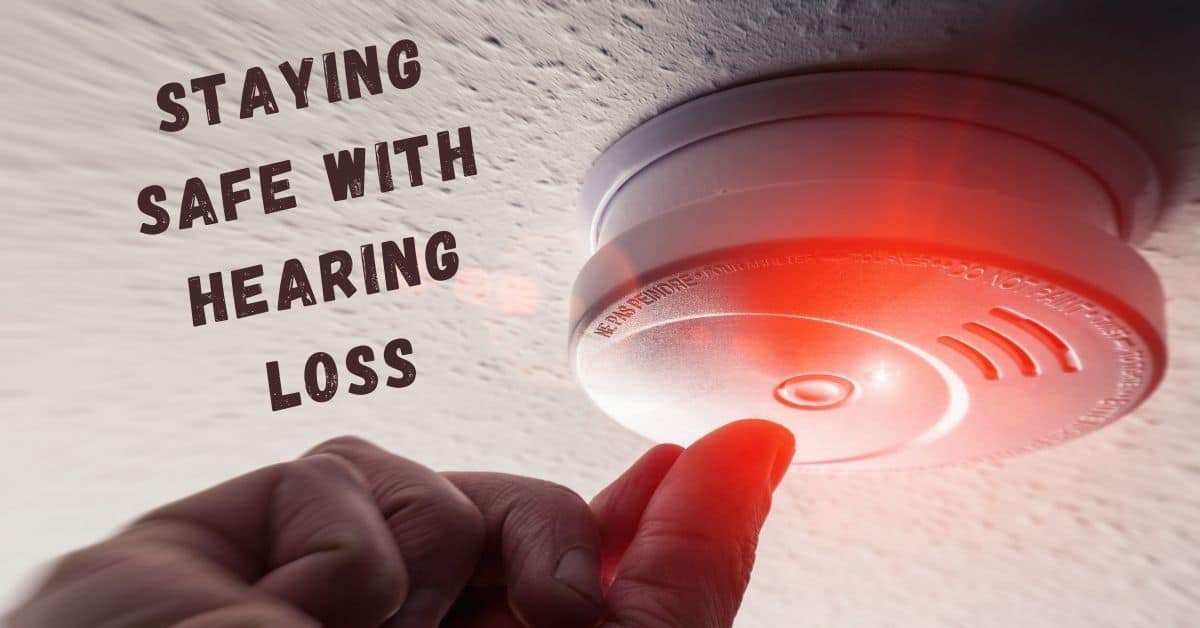
No doubt you can imagine the inconveniences caused by hearing loss. Whether you are trying to understand a customer service representative over the phone, listening to your grandchild tell a story, or trying to hear the total at a market, hearing loss makes everyday life difficult to navigate. Particularly when it goes untreated, hearing loss is also correlated with a wide range of health risks ranging from heart disease to dementia. Although these problems might be enough to encourage you to seek assessment and treatment for hearing loss, another risk might come as a surprise to you: injury. How exactly can hearing loss lead to an injury? The nature of the connection is as varied as the causes of injury, so it is impossible to consider all the ways that hearing loss can put you at higher risk for an injury. However, we can tackle some of the major categories of injury that can be related to hearing loss: home emergencies, leisure activities, and car accidents.
Home Emergencies
Hearing loss can put you at greater risk of a home emergency in many cases. Take, for instance, a fire at home. Your smoke alarm is a life-saving device if there is an emergency, but of course it is only as good as it is heard. You might think that the smell of smoke would arouse you from your sleep in the event that you can’t hear your smoke alarm, but in fact smoke inhalation can cause you to feel drowsy and actually sleep more deeply. If your smoke alarms are not near the place where you sleep, your hearing loss could put you at risk of danger if there were a fire. Be sure that the batteries are replaced regularly, they are placed on every level of your home, and that they are close enough to your bedroom to be heard. If you have advanced hearing loss, specialized smoke detectors can be purchased with very loud sounds and a combination of flashing lights.
Leisure Activities
Although leisure activities are meant to be enjoyed without stress, hearing loss puts you at greater risk of an accident while taking part in many of these activities. Particularly group sports can be riskier for those with untreated hearing loss. We need to remain aware of our shifting surroundings in order to ward off dangers, and hearing is often the first line of defense before we are able to see an oncoming threat. Whether it is a ball flying in your direction or another player who is looking in the other direction, hearing can be remarkably sensitive and useful to identify these spatial risks. Those with hearing loss can have greater risk of injury during these and other leisure activities.
Car Accidents
Unfortunately hearing loss can lead to a greater risk of injury due to a car accident, as well. For a person operating a vehicle, hearing is used to make us aware of emergency vehicles passing nearby, an oncoming vehicle screeching its tires, or another driver who is not stopping when they should. Although sight is tested before the state will issue a driver’s license, hearing tests are not conducted in the same way. The risks for pedestrians and cyclists might be even greater when hearing impairment prohibits our sensitivity to oncoming threats. The sounds of car horns, motors, and brakes are useful to prompt us to jump out of the way of a driver with a car malfunction or to swerve a bicycle away from a car that doesn’t see you in the road. Although sight is useful as a defense mechanism against car accidents in the front or periphery of our line of sight, traffic coming from behind requires the other senses so that we can respond quickly and effectively.
If you are concerned that hearing loss might put you at higher risk of injury, don’t delay seeking a hearing test. With the results in hand, you will know if treatment such as hearing aids can help you prevent some of these potential accidents. The best way to stay safe with hearing loss is to wear the assistive devices that will make you aware of these and many other potential threats.
